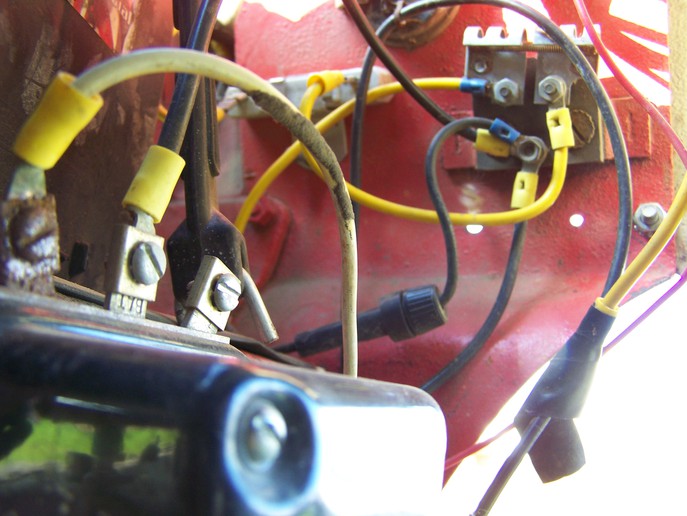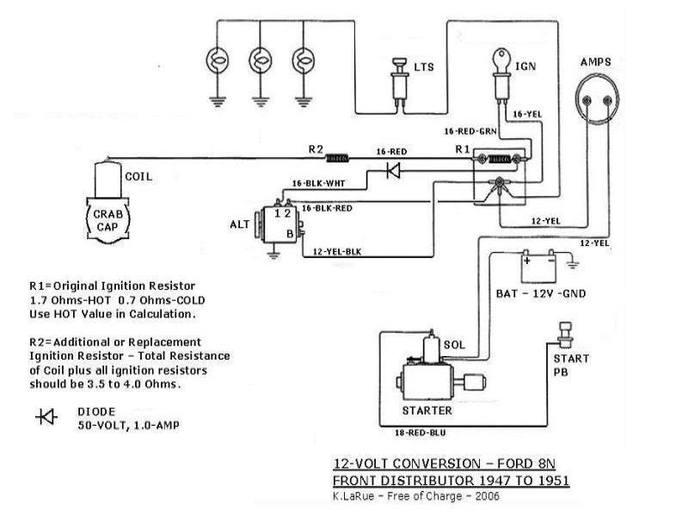When it comes to understanding the electrical system of your Ford 8n tractor, having a clear and accurate wiring diagram is crucial. The Ford 8n Ballast Resistor Wiring Diagram provides a visual representation of the electrical connections and functions of the ballast resistor in the tractor’s ignition system. By following this diagram, you can ensure proper installation and troubleshooting of the electrical components.
Why Ford 8n Ballast Resistor Wiring Diagram are essential:
- Helps in identifying the correct wiring connections for the ballast resistor
- Ensures proper functioning of the ignition system
- Aids in diagnosing and troubleshooting electrical issues
How to read and interpret Ford 8n Ballast Resistor Wiring Diagram:
Reading and interpreting a wiring diagram may seem daunting at first, but with some guidance, it can be a valuable tool in understanding your tractor’s electrical system. Here are some tips to help you decipher the diagram effectively:
- Start by familiarizing yourself with the symbols and color codes used in the diagram
- Follow the lines and connections to understand how the components are linked together
- Pay attention to the legends and labels that explain the functions of each component
Using Ford 8n Ballast Resistor Wiring Diagram for troubleshooting electrical problems:
When facing electrical issues in your Ford 8n tractor, the wiring diagram can be a valuable tool in pinpointing the source of the problem. By following the diagram and checking the connections, you can effectively troubleshoot and resolve any issues. Here are some steps to follow:
- Compare the actual wiring connections with the diagram to identify any discrepancies
- Check for loose or damaged wires that may be causing the problem
- Use a multimeter to test the continuity and voltage at different points in the circuit
Importance of safety when working with electrical systems:
Working with electrical systems, including wiring diagrams, requires caution and adherence to safety protocols. Here are some safety tips to keep in mind:
- Always disconnect the battery before working on the electrical system
- Avoid working on the system in wet or damp conditions
- Use insulated tools and gloves to prevent electric shocks
- If you are unsure about a certain procedure, seek assistance from a professional mechanic
Ford 8n Ballast Resistor Wiring Diagram
Ballast Resistor – Ford 9N, 2N, 8N Forum – Yesterday's Tractors

Ford Ballast Resistor Wiring Diagram – Wiring Diagram
wiring diagram ballast resistor ignition coil

Wiring Diagram For 6 Volt 8n Ford Tractor – Diagrams : Resume Template

8n Ford Wiring Diagram
